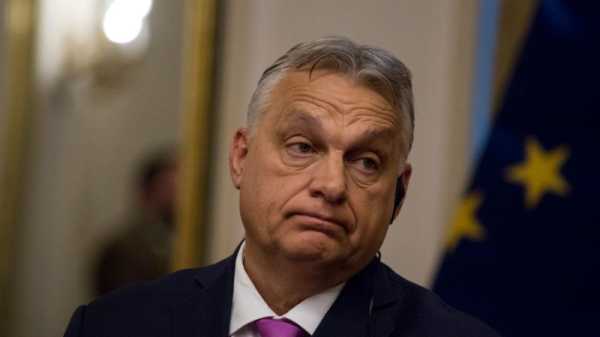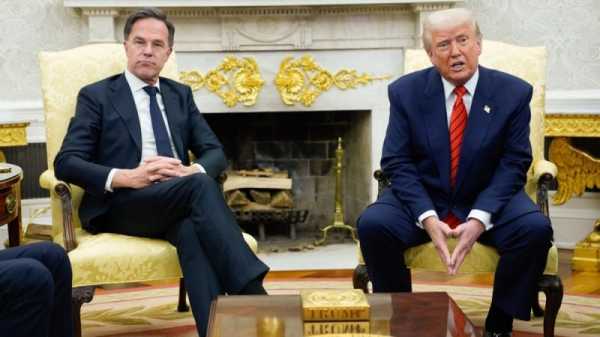
Elections in Europe are often held on Sundays. On Sunday, 2 April, three European countries will vote – Bulgaria, Finland and Montenegro, and the stakes are high.
Bulgarians will vote in snap general elections, the fifth in two years. Previous attempts didn’t result in the formation of a lasting government, and if this attempt fails as well, this could deepen the prolonged political turmoil and result in a constitutional crisis.
After Bulgarians cast their votes, the party with the most votes attempts to form a government. If it fails, the second party attempts. If the second attempt fails, the president chooses one of the remaining parties and gives it the third and last mandate to form a government.
Bulgarian political parties are so divided on various issues that a viable coalition looks like a mission impossible. When there is no real government, the president appoints a caretaker cabinet. This is how Rumen Radev has held the presidential post for six years, representing the country at EU summits.
A key problem is that most political forces favour sending weapons to Ukraine, but Radev is against it, as he repeated at the EU summit today. But the same parties disagree on other issues, such as judicial reform and the fight against corruption, which is why Radev has the upper hand.
In Finland, three political parties, Prime Minister Sanna Marin’s Social Democrats, the centre-right National Coalition Party (EPP) of Petteri Orpo, and the nationalist Finns Party, are neck-and-neck, in the polls, each with some 20% of the expected vote.
Marin, who took office in 2019, has led a five-party coalition of leftist, centrist and green parties with a cabinet of 19 ministers, 12 of which are women.
The Finns Party, part of a ruling coalition for the first time in 2015-2017, has been rising in the polls, representing conservative values and capturing voters’ growing discontent with the increase in the cost of living. The Finns Party will crack down on immigration if it wins a national election next month, leader Riikka Purra said.
The opinion polls suggest that anything is possible, meaning the next prime minister could be Marin, Orpo or Purra.
In Montenegro, voters in the EU candidate country will elect their president in a run-off ballot, pitting the veteran politician Milo Đukanović against Jakov Milatović, nominated by the centrist “Europe now!” party – a new pro-European party.
In the first round on 18 March, Đukanović, who has been either prime minister or president almost constantly since the country’s independence in 2006, obtained 35% of the vote – the lowest figures he or his political force has ever achieved.
Coming in second at around 29% was Jakov Milatović, a candidate of the centrist “Europe now!” – a party that made its national election debut last Sunday.
Will Montenegrins kick out the political dinosaur who, according to many who know the country well, mainly focused on running the country to suit his own interests?
As for Milatović, there are concerns if he can walk the talk if elected, or whether he could favour closer ties with Serbia, a sensitive and divisive national issue.
While we will know the result of Montenegro’s election on the day, in Bulgaria and Finland, forming a coalition government will likely take some time.
But asides from the outcome, the three elections give observers a chance to evaluate whether Russia’s war against Ukraine has impacted Europe’s political developments.
In Bulgaria, failure to form a government and continuing with Radev would likely serve Russian interests in an environment where pro-Russian parties hover on the periphery.
In Finland, the strong pro-Ukraine position of Marin, who has sometimes been criticised for going too far in her support, will either be rewarded or abruptly castigated.
In Montenegro, continuing with the status quo wouldn’t be good news for Brussels, and EU enlargement needs a poster child. Montenegro could qualify if the voters so choose.
The Roundup
The European Commission has approved a request from EU agriculture ministers for a further impact assessment on plans to slash the use and risk of pesticides in half by 2030 but warns it does not have much more information to offer.
Pain management should be included in the forthcoming Commission’s mental health strategy to relieve those “who are suffering in silence”, according to a socialist MEP, Alex Agius Saliba.
The European Parliament and EU ministers struck a deal in the early hours of Thursday morning (23 March) on the bloc’s flagship law to cut emissions in the maritime sector, marking a major step forward for the bloc’s plans to reach carbon neutrality by 2050.
Romanian President Klaus Iohannis said on Thursday (23 March) he does not consider it realistic for Romania to set any deadline for joining the eurozone, days after the government said it was looking to adopt the single currency by 2026.
The European Commission’s consumer protection office will launch a voluntary initiative to move away from repetitive cookie banners in what might be the prelude to a legislative proposal.
Don’t forget to check out our Economy Brief for a roundup of weekly news on the economy across Europe.
Look out for…
- Commission President Ursula von der Leyen participates in the European Council meeting.
- Commission Vice-President Dubravka Šuica in Dubrovnik, HR: participates in the General Assembly of the Standing Committee of European (CPME) Doctors.
- International Partnerships Commissioner Jutta Urpilainen speaks at the Summit of Barents Euro-Arctic Indigenous Sámi People.
- Euro Summit on Friday.
- European Council Summit continues on Friday.
[Edited by Zoran Radosavljevic/Alice Taylor]
Source: euractiv.com



